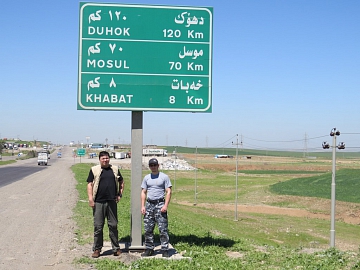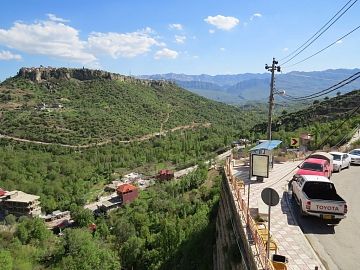ASU entomologists started research of biodiversity in Iraq
Entomologists of Altai State University have proceeded to the research of biological diversity on the territory of Iraq, one of the least studied Eurasian countries.
“The last academic work about Lepidoptera of Iraq was published in 1940 by British ambassador to Bagdad Edward Wiltshire. There are no data on Arachnida at all. It is a blank space in biology,” noted Professor at the Department of Ecology, Biochemistry and Biotechnology, Doctor of Biology Roman V. Yakovlev.
Having established broad international ties, Professor Yakovlev and his postgraduate student A.A. Fomichev left Russia for the Kurdistan Region, the most peaceful region of Iraq. There they are planning to visit and research 4-5 sites in mountains on the borders with Syria, Iran and Turkey.
“The first impressions are very positive! We arrived to Erbil, the capital city of Iraqi Kurdistan, from Istanbul and it turned out to be a very clean, developing city. The Peshmerga (the military forces of the autonomous region of Iraqi Kurdistan) are polite and tactful, although they appear to be quite frightening at first with all their masks and weapons. We drove 300 km through Iraq and were stopped at checkpoints four times, and we saw nothing but kindness and smiles. The nature is amazing. The mountains are beautiful, everything is green. There are a lot of rivers and recreation facilities in picturesque places. Needless to say, there are no drunk people on the streets. Islam here is very democratic – a lot of women wear trousers and are often bare-headed. There are many Christians among Kurds,” said Roman V. Yakovlev.

